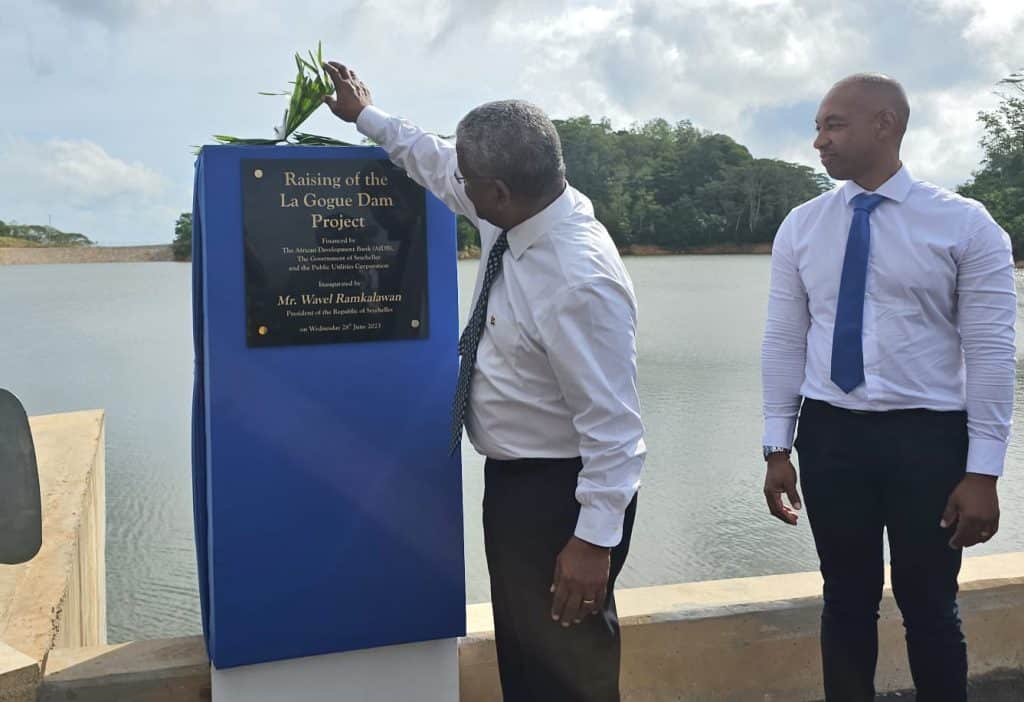After 39 years in service (1979 – 2018), the La Gogue dam is getting a facelift to meet the ever-increasing demand for drinking water in the Seychelles archipelago. The newly-adorned dam was re-commissioned on 28 June 2023, in the presence of Seychelles Head of State Wavel Ramkalawan. Delivery of the infrastructure, announced for 2022, is therefore a year behind schedule.
The rehabilitation work involved raising the dam of the reservoir by 6 m, using an artificial waterproofing system consisting of a polyvinyl chloride (PVC) membrane anchored in a trench dug in the existing core. Sinohydro Corporation and Engineering of China, the project owner, also carried out work on the southern saddle dam and piling work on the right abutment of the dam, to remedy seepage through the structure of the main dam.
Supplying drinking water to thousands of Seychellois
The La Gogue dam is now 35 m high, compared with 29 m before the works. Its storage capacity has increased by 60%, from 600,000 m3 to 1.6 million m3. The water pumped into the La Gogue dam reservoir will be treated before being distributed to households. The Public Utilities Corporation (PUC), which managed the project, is talking about supplying drinking water to thousands more Seychellois. By 2019, the rate of access to a basic source of drinking water in the East African country had already reached 97%, according to the World Bank.
Read also –
The future drinking water plant will be built downstream of the reservoir. The PUC estimates that the plant will have a production capacity of 4,400 m3 of drinking water per day when it comes on stream. The plant will supply Mahé, the largest island in the Seychelles archipelago. The cost of rehabilitating the La Gogue dam was $20 million, financed by the Seychelles government thanks to a loan from the African Development Bank (AfDB).
Inès Magoum
